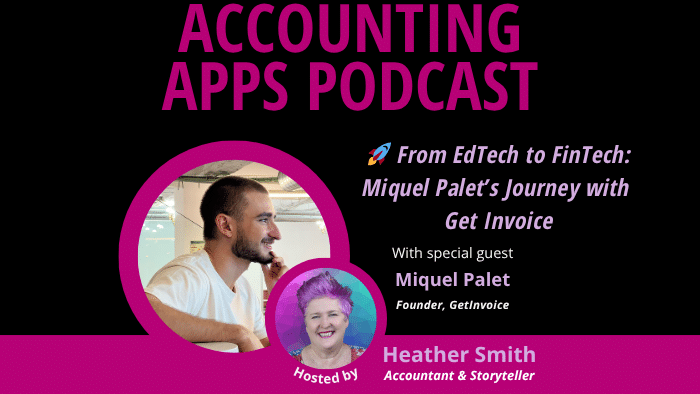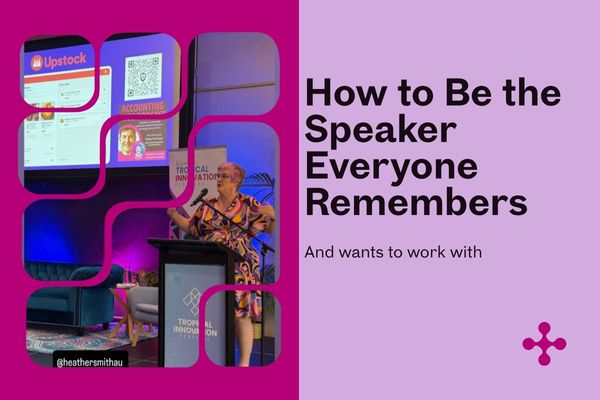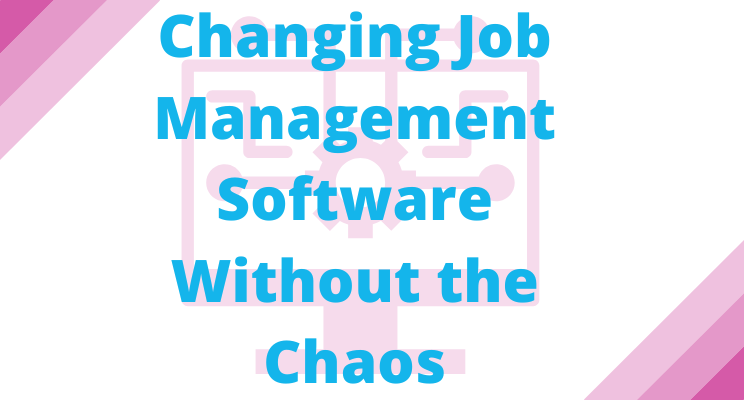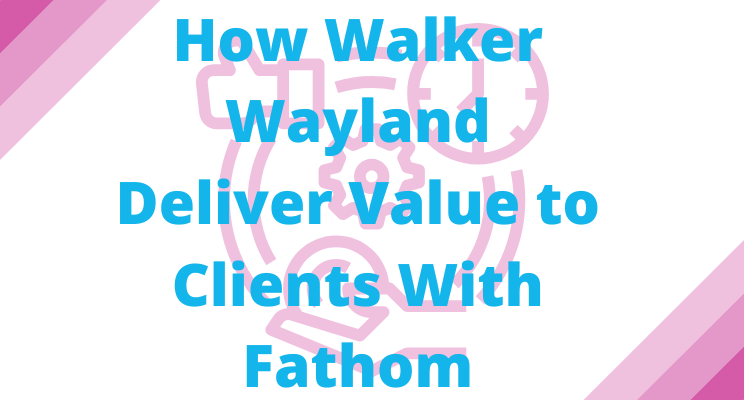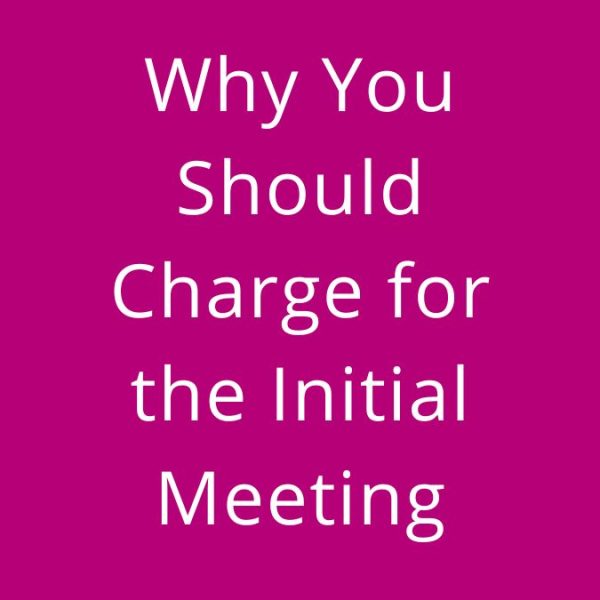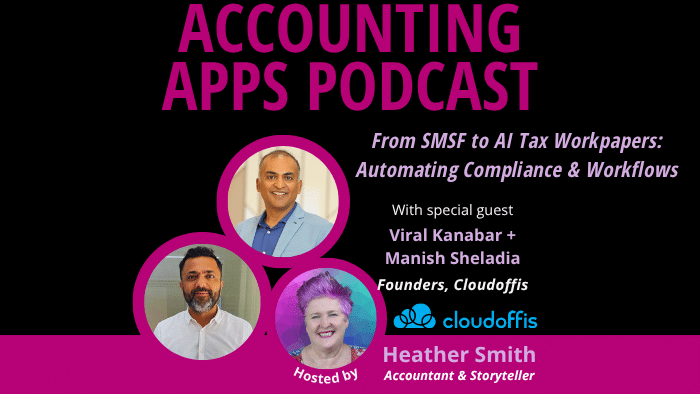“What was very important in my journey was going outside of my industry and learning and connecting with women who are doing it in other industries. To be able to hear their tech journey, their failures, and their successes, and to see what the potential was, and then to be able to bring that into my industry.”
– Jo Hurley, Techpreneur & Motivational Speaker.
Today, I’m speaking with Jo Hurley, Chartered Accountant, Motivational Speaker, Techpreneur, and Triathlete, which I interviewed as a part of the LYD25 Unstoppable Growth Conference.
As a female founder in fintech, Jo Hurley shares her journey as a tech entrepreneur, learning from other sectors, selling her tech business to Deloitte, and how endurance sports fuel her personal growth.
Key learnings of this episode include:
Tech in Finance: How Jo leveraged technology to transform audit processes.
Women in Tech: Facing industry pushback & building networks beyond finance.
Selling a Business: The realities of selling to Deloitte & unexpected retirement.
Mindset & Endurance: How Ironman training fosters discipline & deep reflection.
- Storytelling & Speaking: Using experience to connect with and inspire others.
For those looking to earn free CPE, be sure to head over to my channel on EarMarkApp and take the quiz for the podcast you listen to!
Scroll down for a full transcript
This transcript has been generated and transcribed by AI
Can you share who you are and what you’re currently doing with our listeners?
Jo Hurley
Yeah, sure. So my name’s Jo. I have been in the accounting industry, the finance industry, for a very long time, actually, almost 30 years, actually. But I’ve been on this very new journey, which is all about, I guess, fitness and well being and becoming an Iron Man, Iron woman. But yeah, essentially learning from scratch the skills of being a triathlete.
Heather Smith
Yeah, and I’m looking at Jo, and she doesn’t look like she’s been in the industry 30 years. Look very young and very fit, as I’m sure our listeners would expect, if you’re training as you are. Can I circle back to your very involved in technology?
Can you talk about your journey in the technology world with us?
Jo Hurley
Yeah, sure. So I am extremely passionate about retirement savings and essentially retiring, you know, with enough money to have a decent quality of living, I guess, in the in the later stages of life and. I was very lucky to be joining the superannuation industry at a time where self managed super funds were just kicking off in the later 90s. I actually chose the audit space because I felt like as the only annual compulsory part of the self managed super fund industry, it’s the only service that’s compulsory and annual that I would have the chance to be of most impact and to touch, you know, more families and be able to help them through my expertise, and that’s why I chose that.
Technology essentially became an enabler for me to be able to like, be able to impact more people. So it was really about growth with purpose, definitely not driven by how much money I was making or how big the business might get, or anything like tha. But how many people that we could give proper professional advice to as to whether you know the journey they were on with their self managed super funds was on track.
You’re sitting in the technical space. How much technical knowledge did you need on board to drive that?
Jo Hurley
Oh my gosh, so much. It was really important. I always felt like it was such a waste of money for anyone to have an auditor that was less had less technical expertise than the advisor who was working directly with a client. I just that just did not make sense to me. So I invested very heavily in my education. I was really, like, one of, you know, I was the kind of front of class student in as many SMSF specialist courses as I could. I went to a lot of industry events, and this is in my early 20s. I was just an avid learner of strategy.
That’s how I met Grant. And, you know, a lot of the early, I guess founders of our industry as well, because I was sitting there as just like just eating up as much as I could. I wanted to be familiar with the strategies that they were advising on and recommending and what problems they were trying to solve. So that I could appropriately audit the execution and know whether the advisors who’d also been to the same conference had executed it as intended. Whether it was appropriate versus having made mistakes that I could –hopefully as timely as possible– basically help them to resolve anything that might have gone wrong.
Heather Smith
I think, is it Malcolm Gladwell who says, sort of, an expert is 10,000 hours of investment in time?
It’s always great to hear someone who has been successful, who actually has done the hard yards.
Jo Hurley
Absolutely. Like, I think, I think for me, being young, like, I kind of hit the ground running. I had the energy and enthusiasm. I was a young mom, you know, I had a lot on my plate trying to get those qualifications and everything. But I did have that long term view to say it’s really important for me to do that. I think the other thing as well is, when you set up your business, I set up my business at 27 and in order to get, in order to close a lot of those deals, there was an element where I was being tested in the sales conversation. Do you really know your stuff? Can I trust you? You know, because on physical, if you were to just judge, judge me on, you know, a book by its cover, you may like, you know, there was definitely something where I felt like I needed to prove and have some evidence to say that I wasn’t just knocking on the door as a pretty face, but there was substance behind that.
Heather Smith
That is an ongoing challenge. The interesting thing is, I’ve run this podcast for maybe eight years now, and it’s actually so rare for to find and speak to a female founder in the tech space.
Did you face any challenges in your journey? What advice would you have for yourself when you started or the next female tech founder?
Jo Hurley
Yeah, sure. So I think where I where I probably experienced the most pushback around my journey with tech was actually in my own industry. Because I found, yeah, that it was it’s kind of, you can understand, because it’s quite threatening. You know, you when you’re talking in your own industry, they’re very much driven by the desire to keep the status quo and to protect their patch and not to not to have to go through change or face that kind of competition. It’s scary to them.
So really like what was very important in my journey was going outside of my industry and learning and connecting with women who are doing it in other industries, and to be able to hear like their tech journey, their failures, their successes, and to see what the potential was, and then to be able to bring that into my industry. That’s where the fresh ideas were, the innovation and all those kinds of things. I could see what they were doing, and then pull out the things that I felt like were really going to be advantageous for the industry that I was most passionate about. And that’s and that’s how I kind of built my network and built my confidence to say, Joe, like you’re not crazy, like what you’re on the right path. Keep going.
How did you find these other tech founders?
Jo Hurley
Mostly it was through women’s network. So Women in Focus with CommBank, the Telstra Business, Women’s Awards and that alumni as well. Going through that process, I found that that brought me a lot of opportunity. It gave me opportunities as well to speak to other entrepreneurs, be on panels, you know, get on stage, have my ideas challenged, and also just give me confidence that the journey that I was on was also benefiting others at same time. It wasn’t me just taking. I was giving and receiving yes through that process.
Share about your journey of selling your business. How did that work?
Jo Hurley
I guess, like I was very much focused with my business on driving audit to be much more relevant and to get closer to when decisions and transactions were actually happening. I had this vision for, you know, audit activity that is would look much more like what you see today with credit cards and banks and those kinds of things. You know, a transaction happens, or it’s about to happen, and there’s some form of, like, audit activity or flag that says, hey, we want to look at this further, and we can say, Yes, this looks good. And I felt like, you know, in an area where there was a constant drive to, you know, to say, this is compliance, it’s red tape, you know, it’s a waste of money, that we’d be able to show better value if we were more, you know, current; not looking at the transaction two years after it happened.
In order to get to that point, it needed investment, it needed scale. It needed people who knew how to do things, where I could have the ideas and the vision but the execution. I just had to admit that I didn’t have the time to do everything, and I couldn’t do it on my own. So I went through a journey of looking at, I guess, mergers, different opportunities to potentially partner with, you know, actually, you know, merge together audit firms and see, you know, if the talents of the various partners could then free me up to be able to do more of that, and potentially, you know, just provide the scale that we needed, because any of these types of things you need the data, like, the more funds we had, the more data we’d have to be able to train the technology to get better. So this is very early stages of robotics, automation using data feeds and analytics to be able to pull out the transactions that we that we needed to pay attention to.
During that process, I engaged with Deloitte. It was a firm that I’d had previous experience with. I’d worked there as a cadet, and I had good connections with the Deloitte Digital team. We ran a heap of you know scenarios about what this could actually look like, and modeled it out. There was a point in time where, you know, Deloitte, felt that it made sense to acquire my business and that we would move forward together, to hopefully build out this solution and with the scale we needed and the expertise.
I went as part of that package. I never intended for that to be a sale and exit, or some form of early retirement. I was not selling to exit. I was selling to grow. Because I still had dreams of a much bigger impact than what I’d achieved on my own. Unfortunately, the realities of how that kind of played out resulted in me actually retiring at the age of 39 and and finding myself just in a just at that point where you go, what I don’t know. What do I do now? I’ve got restraint of trade, you know, I’ve got all these things happening, and my purpose feels like it’s on the shelf, like, is that it, for me.
Heather Smith
A very interesting journey, and I really appreciate you sharing that with us. Now, we did speak earlier, and I know that you do a lot of heavy training, and you do a lot of sort of triathlon preparation.
Can you talk us through your Triathlon preparation? How do you control your mind, and how do you think during those hours of training?
Jo Hurley
Triathlon is a hell of a lot of work. I’ve realised, actually, through this journey, that I’m the type of person that likes to make out, like everything’s really easy. Like things just come easy to me. And you know, I think it’s to make other people feel like it’s comes from a good place. It’s because I want other people to feel like it’s possible for them too. I feel like if they think it’s accessible, and if I can do it, they can do it like I’ve strongly believed in that.
But over time and probably with a bit of maturity and reflection, I’ve realised that being honest about the amount of work and how hard it really is, and the realities of what I’m actually doing every day that is a deeper. That enables a deeper conversation. It doesn’t scare off the people who really want that for themselves anyway. It’s actually doing them a disservice to hide that, you know, and it kind of devalues what you do.
In terms of, like, what that really like, my reality looks like every day. Yes, training for long distance triathlon, which is where I’m aiming for is the half Iron Man and The Iron Man distance triathlons. I’m training 20 plus hours a week and spending a lot of time. Yeah, I have a lot of reflection time where I’m on the bike for hours. Some of my sessions are very require me to be very, very present with all of the numbers and data and the physical actions that I’m doing in that training session. And then there’s other sessions that I do, where it’s like a meditation. It actually gives me space to think through and process the reasons why I’m here and the reasons why I care so much and what it is I’m actually building and working on. That has proved so valuable.
I think it’s really been so beneficial for even for me, preparing for, you know, to be able to go on stage for the first time and and share this stage of my life and what it’s truly about. Most of that I wrote in my mind as I rode my bike, and as I, you know, did long pool training sessions that didn’t really require me to be, you know, fully in training mode. I had that thinking space to reflect. I don’t know, sometimes you hear, I used to have the thing of like, all the best ideas come to you in the shower, yes, or something like that. Because, you know what it is? It’s because in the shower or in the pool, I’m out of my head and in my body.
Heather Smith
Yes.
Jo Hurley
Suddenly it frees the creative brain to give you like messages that have such clarity. Because all the noise and all the to-do list and on every all that stuff, it’s not rattling around, it’s not present. So that is where I’m most creative. And sometimes you know what, it sucks. Because you’re on the bike and you get these epiphanies, and you can’t write them down. And sometimes I get to the end and I’m like, Oh my God, I feel like I just had like, at my fingertips, like, you know, the solution to the world’s problems, and now I’ve forgotten what it was.
Heather Smith
So we just saw Nick Sinclair on stage and he has a recorder on him at all times. Yeah, that’s he said, I keep a recorder on me at all times. Maybe that’s, that’s your solution.
Jo Hurley
Oh my gosh. I really love that. I really, really love that. I love storytelling and but I struggle to sit down and write the story. Every time I step on stage, I don’t write a speech. I don’t write it.
Heather Smith
Yeah, so it just comes out. It just activates.
Jo Hurley
It activates. It activates through connection and eye contact and body language and stuff. I feel someone asking me to go deeper and I step into that. I don’t know exactly where it’s going to go. So that is such a great idea.
Heather Smith
Absolutely. Clayton Oates notes was also on stage. He was saying how he writes down every little idea, like, as you were saying, writing down those ideas of clarity. So maybe if we can capture them, the world will be saved and a better place. Thank you, Joe. I should also mention Joe Hurley was the keynote speaker at Lightyear Docs event here at the Sunshine Coast the 2025 and it was a sensational talk. And so many people have said it was really impactful for them. So that was wonderful that you were here to give that talk. Thank you so much for joining me on the Accounting Apps podcast, Jo.
Jo Hurley
Thank you so much. It was really nice to meet you at this event. It’s been a pleasure.





